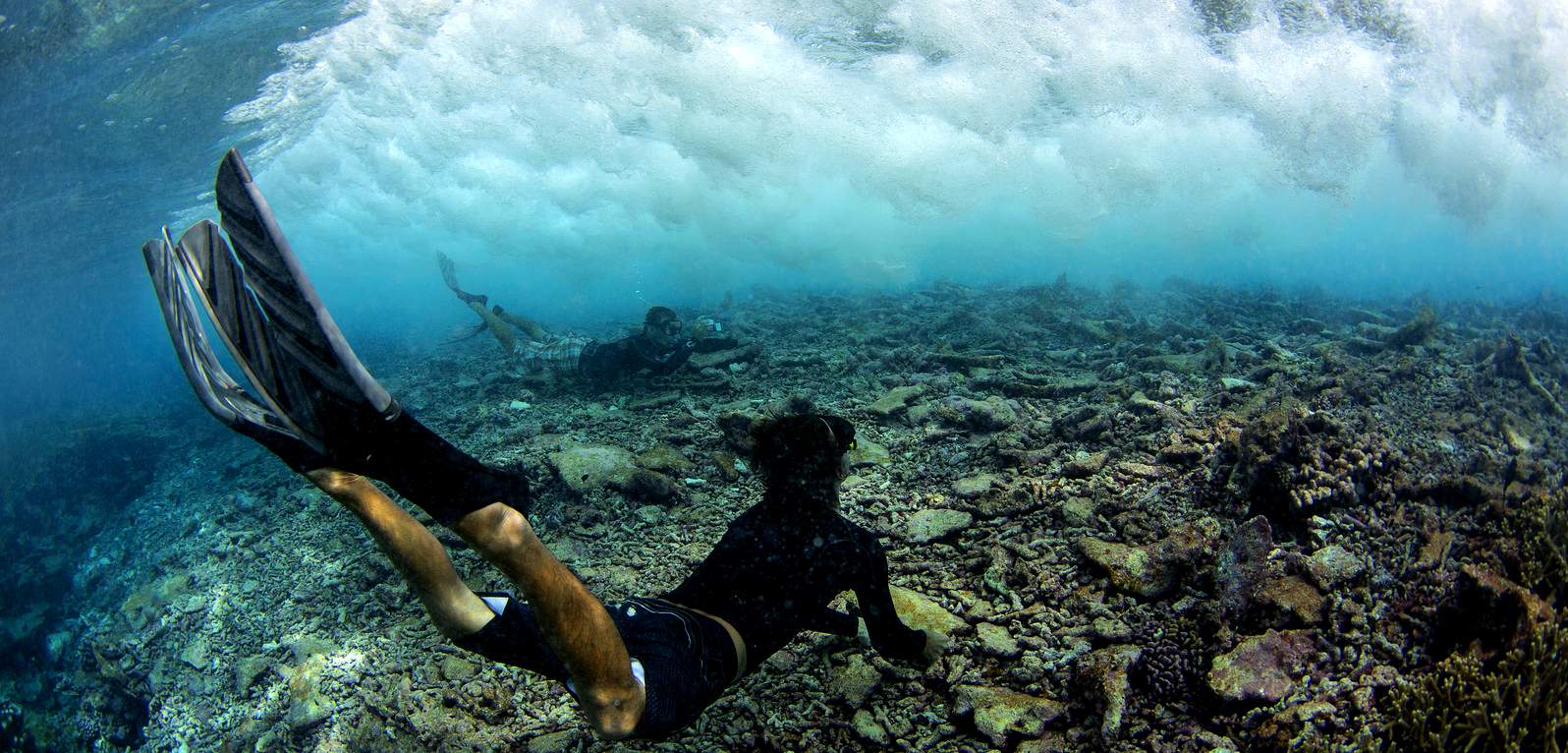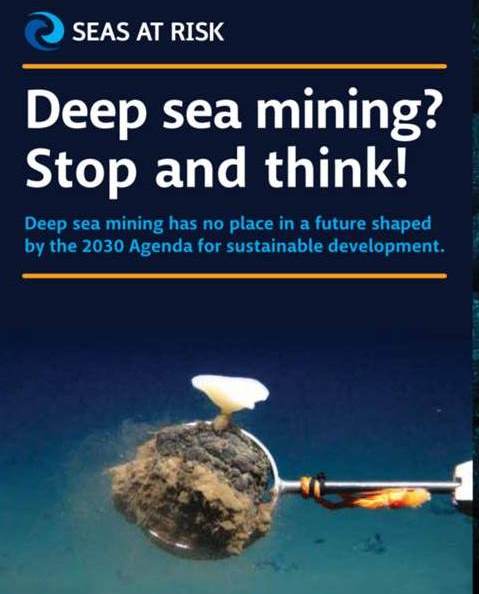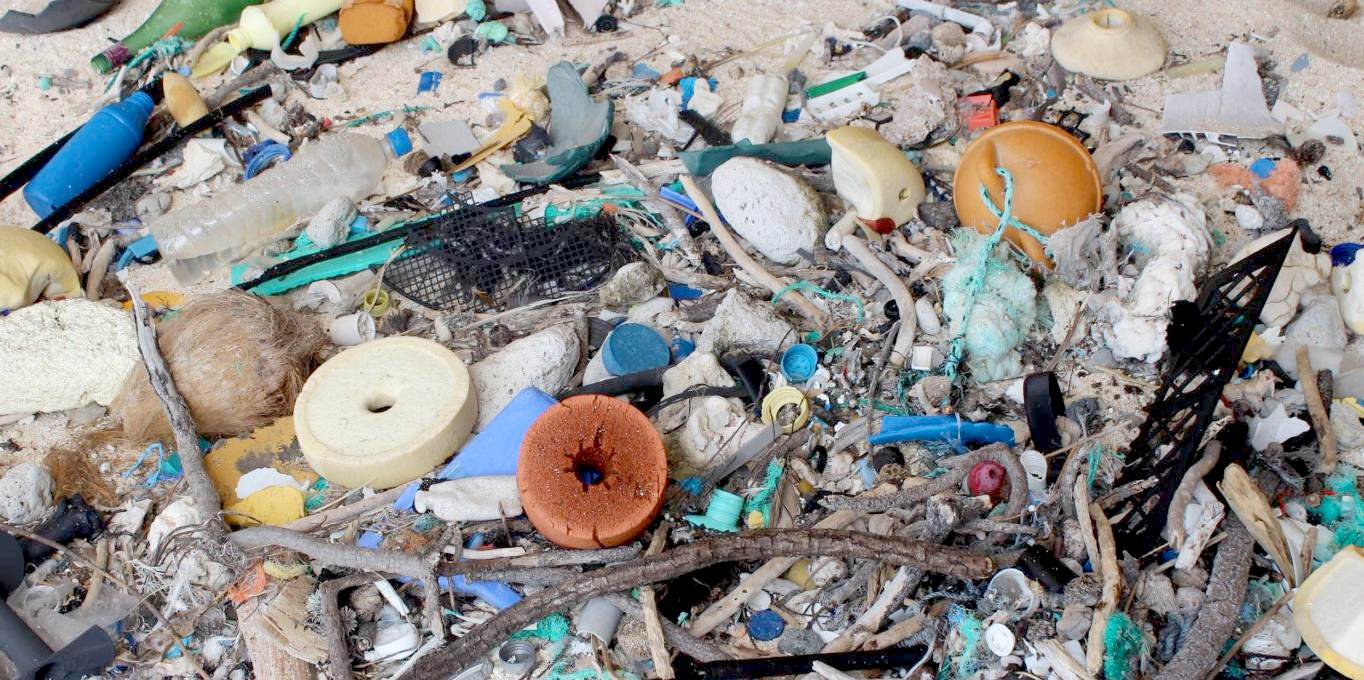|
Archipelagos - Greece Archipelagos, Institute of Marine Conservation is a Greek non-profit, non-governmental organization founded in 1998. Archipelagos is committed to researching and defending the biodiversity of the Greek seas and islands, as well as of the NE Mediterranean region overall. |
 |
|
The Association for Environment and Nature Conservation Germany (BUND) is committed to protecting the natural environment which makes life possible for the world. The BUND is involved in ecological agriculture and healthy food for climate protection and the development of renewable energy, protection of endangered species, forests and water. With about 480,000 members BUND is one of the major environmental groups in Germany, with a national network of 2,000 regional and local departments. |
|
|
Danmarks Naturfredningsforening - Denmark Danmarks Naturfredningsforening (DNF) is the largest nature conservation and environmental organisation in Denmark. With the support of 140,000 members, DNF works to protect nature and the environment. It has 216 local committees and 2000 active members who are active at local and regional levels. The organisation also tries to generate attention to EU matters in Denmark. |
 |
|
European Environmental Bureau - International The European Environmental Bureau (EEB) is a federation of more than 140 environmental citizens’ organisations based in all EU Member States and most Accession Countries, as well as in a few neighbouring countries. These organisations range from local and national, to European and international. The aim of the EEB is to protect and improve the environment of Europe and to enable the citizens of Europe to play their part in achieving that goal. |
 |
|
The ENT Foundation is a private research center whose aim is to develop research and innovation projects in the areas of environment, development and international cooperation. They work mainly with other research centers, public administration and NGOs. |
 |
|
Environmental Investigation Agency - International EIA’s investigations are a trademark of their work around the world, but they tackle environmental crime and defend the natural world strategically, operating in a number of different ways. Their findings are combined with scientific documentation and representation at international conventions, creating the hard-hitting campaigns which have earned them a global reputation. |
 |
|
fish4tomorrow is a Maltese NGO that aims to create a culture of sustainable fishing and seafood consumption. Formed originally in 2010 as a coalition between five Maltese NGOs, the organisation has previously worked on information and public advocacy on the issue of sustainable fisheries, and the organisation is now aiming to engage in bigger projects based on research, advocacy and communications, while engaging with EU fisheries policy making. |
 |
|
France Nature Environnement - France Established in 1976, France Nature Environnement is a network of more than 3000 associations working for environment protection. It contributes to the improvement and respect of environmental laws in France and is present in more than 200 consultative and advisory bodies. |
 |
|
Good Fish Foundation - Netherlands The Good Fish Foundation (GFF) was founded in June 2014 to manage and develop the Dutch VISwijzer (Seafood Guide). The GFF works with and alongside European businesses to accelerate the transition towards a sustainable seafood supply chain and sustainable aquaculture development. They aim to do this by promoting market demand for sustainable seafood and by assisting consumers and businesses throughout the seafood supply chain in making informed and responsible buying decisions in the Netherlands and Europe. |
 |
|
Grupo de Estudos de Ordenamento do Território e Ambiente - Portugal Grupo de Estudos de Ordenamento do Território e Ambiente (GEOTA) was established in 1986 and is a nationwide, non-profit, non-governmental organisation, independent from political, economic, religious or other affiliations. |
 |
|
Founded in 1980, Legambiente was one of the first groups of environmentalists and antinuclear movements that developed in Italy and throughout the Western world. |
 |
|
Levende Hav (Danish Society for a Living Sea) works for the preservation of the marine landscape, to guarantee a diversity of marine flora and fauna, and to ensure that future fisheries are based on ecological principles and are sustainable both economically and socially. |
 |
|
Liga para a Protecção da Natureza - Portugal Liga para a Protecção da Natureza (LPN) is one of Portugal's leading non-governmental organisation with 7500 members. It is the oldest environmental association in the Iberian Peninsula, created in 1948, with the main tobjective of contributing to the conservation of nature, biodiversity and ecosystems. |
|
|
The Mare Foundation was founded in 2015 to work to protect the Polish and Baltic marine environment. The main objectives of the MARE Foundation are conservation of marine living resources and their habitats through measures aimed at promoting sustainable exploitation of marine and coastal resources, the protection of ecosystems and its components having an impact on the marine environment and raising public awareness of environmental matters, as well as helping people affected by ecological disasters and their effects. |
|
|
Marine Conservation Society - UK The Marine Conservation Society (MCS) was officially registered as a charity in 1983 in the UK. Since then, MCS has achieved major successes in protecting special wildlife, tackling sewage problems, helping the seafood-buying public, and influencing Government and industry. Today, more than 7,000 supporters fund their work through membership, donations, and turtle adoption schemes. An additional 8,000 MCS volunteers participate in the yearly beach clean up activities around the country. |
 |
|
Mediterranean SOS Network - Greece MEDITERRANEAN SOS Network is a non-profitable, non-governmental organization active since 1990 in matters related to the environment and culture on a Euro - Mediterranean level. It has120 Full Members who form its annual General Assembly and approximately 3000 Supporting Members. |
 |
|
Natuurpunt is a Belgian NGO, who administers and maintains northern Belgian’s network of natural parks and nature centers. They have a very large membership base of ordinary people who want to enjoy nature and contribute to protecting it. They also have a large base of volunteers and staff who work in the natural parks, preserving nature and educating the general public. Natuurpunt also works on coastal issues to protect Belgian beaches. |
|
|
Norges Naturvernforbund - Norway Norges Naturvernforbund (NNV) was founded in 1914 and is Norway's largest environmental conservation organisation with around 28,000 members. NNV is a nationwide organisation with branches in all counties, and 155 local groups scattered throughout Norway. |
 |
|
OceanCare has been working for the protection of marine mammals and oceans since 1989. With research and conservation projects, campaigns, environmental education as well as its contributions to a range of important international committees, OceanCare has undertaken concrete steps worldwide to improve the conditions of life in the world’s oceans. |
 |
|
Project AWARE - International Project AWARE Foundation is a growing movement of scuba divers protecting the ocean planet – one dive at a time. They are focusing in on two major ocean issues –Sharks in Peril and Marine Debris, or trash in our ocean. They are concentrating on these serious problems where scuba divers are uniquely positioned to directly and positively affect real, long-term change. |
 |
|
Quercus - Portugal Quercus is the largest environmental NGO in Portugal. It was founded in 1985 and acts as an independent, non-partisan association of citizens who share an interest in the conservation of nature. Today its work includes conservation of nature and biodiversity, energy, water, waste, climate change, forests, sustainable consumption, environmental responsibility and marine protection. |
 |
|
Retorna - Spain Retorna is a platform formed by over 15 members from different NGO´s, including consumer and environmental groups, trade unions and the recycling industry. Its aim is to change the production and consumption model to one that considers waste as a resource and believes no resource should be landfilled or incinerated and never end up in our forests, rivers or seas. |
 |
|
Sciaena - Portugal Sciaena is a Portuguese NGO that works to conceive, implement and support marine environmental projects, promotes the sustainable use of coastal and marine resources, and advocates for the integrated development of associated communities. They lobby nationally and internationally to promote a scientific approach to marine environmental protection. |
|
|
Sea First Foundation - Belgium The Sea First Foundation (SFF) informs and educates the general public, and children in particular, about the importance of the world’s oceans and what threats are posed to the marine environment. By creating awareness, SFF tries to reduce or (preferrably) stop the detrimental human influence on the oceans and all marine life, whether it be underwater or topside (like seabirds). SFF was founded by people who are involved in the oceans in many diverse way; be it through work, training, hobby or general interest. |
 |
|
Stichting De Noordzee - Netherlands Stichting De Noordzee is a professional Dutch non-governmental organisation working exclusively on North Sea issues. |
 |
|
Sunce - Croatia Sunce is one of Croatia's leading civil society organizations for environmental and nature protection. Sunce advocates responsible management of natural resources based on the principles of sustainable development and contributes to this through the development of expert studies, guidelines, plans and strategies for effective protection of the environment. Sunce also actively contributes to conservation by encouraging public participation, education and awareness raising. |
|
|
Surfers Against Sewage (SAS) is an environmental charity protecting the UK’s oceans, waves and beaches for all to enjoy safely and sustainably, via community action, campaigning, volunteering, conservation, education and scientific research. |
 |
|
Surfrider Foundation Europe - International Surfrider Foundation Europe is a non profit organization, dedicated to defending, saving, improving on and managing in a sustainable way the ocean, coastline, waves and the people who enjoy its use. Created in 1990 in Europe (Biarritz, France) by surfers, including 3-time World Surfing Champion Tom Curren, the organization brings together today about 700 volunteers, 10,500 members, more than 40 local chapters, and 150,000 supporters in Europe. |
 |
|
Sustainable Water Action Network (SWAN) - Ireland The Sustainable Water Network (SWAN) is an umbrella network of twenty-six of Ireland’s leading environmental groups working together to protect Ireland’s waters by participating in the implementation of the EU Water Framework Directive (WFD), Marine Strategy Framework and other water related policy in Ireland. SWAN is made up of national and local groups with a wide range of specialist and local knowledge and expertise in all areas of Ireland’s aquatic environment. |
|
|
Svenska Naturskyddsföreningen - Sweden Svenska Naturskyddsföreningen (SSNC) is the largest nature conservation and environmental organisation in Sweden with 170,000 members and 274 local branches across the whole country. |
|
|
Voice of Irish Concern for the Environment - Ireland Voice of Irish Concern for the Environment (VOICE) promotes a respectful relationship with the Earth and positive solutions to environmental destruction. In co-operation with local, national and international organisations, it works to increase environmental awareness through education, empower people to protect the environment, and campaign on national environmental policy. |
|
|
De Waddenvereniging - Netherlands The Wadden Sea, Europe's largest intertidal wetland, is situated between the mainland of The Netherlands, Germany and Denmark and a string of islands. De Waddenvereniging (The Wadden Sea Society) was established in 1965, has more than 45,000 members, and aims to preserve the characteristic values of the Wadden area for future generations. |
 |
|
Whale and Dolphin Conservation - International Whale and Dolphin Conservation is the leading global charity dedicated to the conservation and protection of whales and dolphins. They defend these remarkable creatures against the many threats they face through campaigns, lobbying, advising governments, conservation projects, field research and rescue. Their vision is a world where every whale and dolphin is safe and free. |
 |
|
World Animal Protection - International World Animal Protection (formerly the World Society for the Protection of Animals) is an international non-profit animal welfare organization that has been in operation for over 30 years. The charity has regional hubs in: Africa, Asia, Europe, Latin America and North America, and offices in 15 countries. The international office is in London. |
 |
|
SEAS AT RISK & BLUE GROWTH
ABOUT - CONTACTS - FOUNDATION - HOME - A-Z INDEX
OUR OCEANS ARE IN DANGER - There are many ways that an organization can contribute to the health of our oceans. Each of the members of Seas At Risk are doing their bit to help recovery and thereafter, to promote sustainable practices.
The Cleaner Ocean Foundation assimilates the information that has been gathered by others and looks at alternatives to solutions that exist, in the hope of bringing something new to the table. SeaVax has been identified as a platform with potential for many uses aiming towards ocean salvation, including: 1. responsible fishing vessels, 2. plastic waste collection and 3. oil spills containment. Finally, the SeaVax is solar and wind powered and may help to pave the way for zero emission cargo vessels of the future.
For
these reasons the Cleaner Ocean Foundation is looking to build
a prototype
SeaVax within
the next three years, subject to the availability of funding
for this colossal research undertaking. Under the present
calls, Horizon
2020 funding may not be sufficient for COF's purpose. If
the SeaVax project is to see the light of day other funding
sources will almost certainly be required.
BLUE GROWTH
According
to their website, 'Seas At Risk' works to ensure that environmental protection is at the heart of any long-term economic agenda and in full compliance with the EU's Good Environmental Status 2020 objective.
AQUACULTURE
SHIPPING
& CLIMATE CHANGE
THE
INDEPENDENT HENDERSON ISLAND - Beaches
of a remote British island in the South Pacific are littered
with an estimated 37.7 million pieces of plastic as a result
of carelessness on our part. We simply cannot allow such
irresponsible actions to continue unchecked. Even with such
vessels as SeaVax patrolling is fleets as a backstop, we must
make it that waste disposal even in small amounts
carries serious consequences for the offenders.
MARINE LITTER
The European marine environment has become engulfed in litter, the majority of which is plastic. It is an entirely human created pollutant that has severe ecological impacts, as well as economic costs to marine industries and local authorities. It is a problem that respects no boundaries, and is not caused by one single culprit, but can be considered a symptom of our consumer society and the production of endless goods and the inappropriate methods of disposing of them. The evidence of the harm caused by marine litter is growing. It can be ingested by or entangle marine life, it breaks down into microscopic particles, attract and absorb dangerous chemicals, aid the spread of invasive species and dangerous pathogens, and has spread to every corner of our oceans.
WASTE
FROM SHIPS
Port reception facilities are the waste disposal facilities provided for ships by port authorities. If these facilities are inadequate, complicated to use or simply too expensive, then it provides ship operators and crews with an incentive to dump their garbage at sea instead. This is illegal in most cases but once at sea they are unlikely to be detected by authorities.
SEAS AT RISK MEMBERS
Seas At Risk has 34 member organizations in seventeen countries. Their members are all non-governmental environmental organizations with national or international status..
SEAS AT RISK FUNDING
Seas At Risk is funded both by membership fees and grants from external bodies. For 2016-17 Seas At Risk secured funding from the following sources:
CONTACTS
Seas at Risk Rue d'Edimbourg 26 1050 Brussels Belgium Email: secretariat@seas-at-risk.org Tel: +32 (0)2 893 0965
LINKS & REFERENCE
http://www.seas-at-risk.org/issues/blue-growth.html
This website is provided on a free basis as a public information service. copyright © Cleaner Oceans Foundation Ltd (COFL) (Company No: 4674774) May 2017. Solar Studios, BN271RF, United Kingdom. COFL is a charity without share capital.
|





